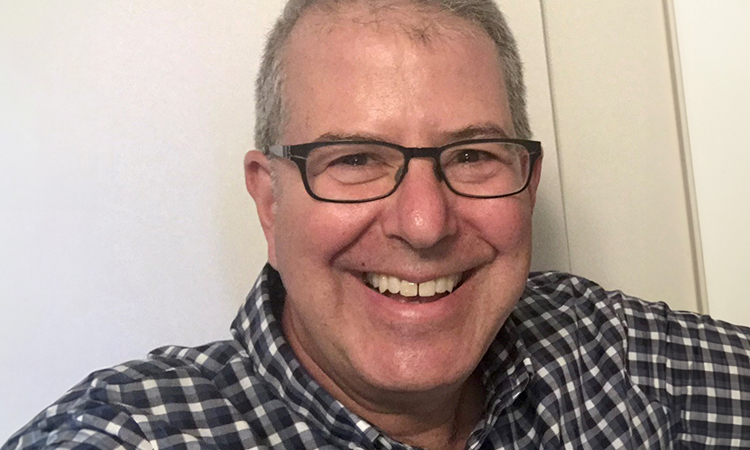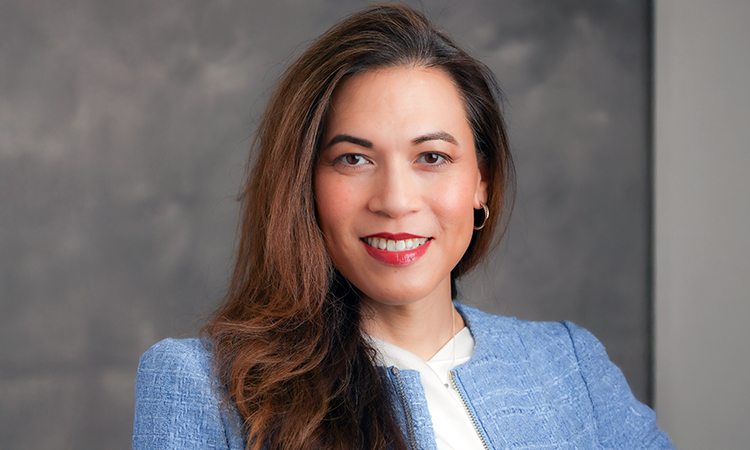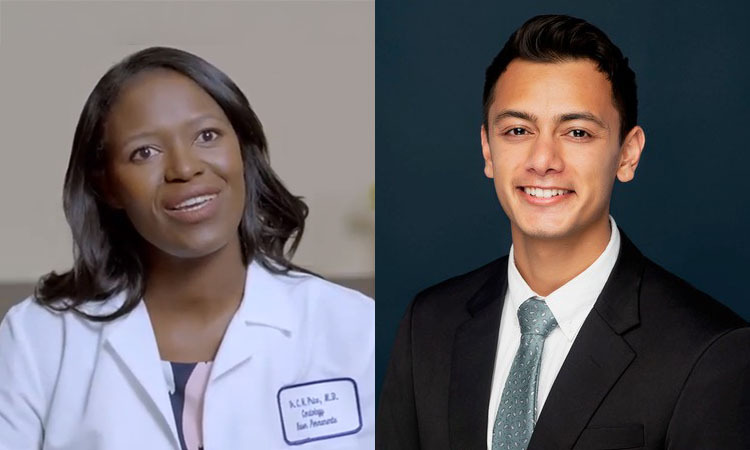Many people aim to carve out a career that fulfills a professional interest in a primary area, but some are fortunate enough to incorporate multiple areas of professional and personal interest. Jeffrey Burack, MD, MPP, Bphil, Professor of Health Systems Science at Kaiser Permanente Bernard J. Tyson School of Medicine (KPSOM), is one of those fortunate few.
Interestingly, Dr. Burack, a physician with 30 years of clinical experience caring for marginalized populations with all stages of HIV infection, once strongly considered becoming a philosopher rather than a physician and educator. Today, he is an HIV/AIDS medicine specialist at Alta Bates Summit Medical Center in Oakland and Berkeley, California. There, he and a small group of doctors and nurse practitioners provide both inpatient care to hospitalized patients and outpatient primary and specialty care to people living with HIV at the East Bay Advanced Care clinic, formerly the East Bay AIDS Center. In addition, Dr. Burack serves in a joint appointment in KPSOM’s Health System Science (HSS) and Clinical Science departments, with his primary appointment in HSS.
A Nontraditional Path
Dr. Burack’s journey to medicine included a few interesting twists and turns off the beaten path. While he’d applied to medical school, he deferred his admission to obtain a graduate degree in philosophy as a Rhodes Scholar at the University of Oxford, with the goal of becoming a philosophy professor.
“Over time, I realized that the study of philosophy was relatively isolating and far different from the gratification and connection I would later receive in my interaction with people in the medical field,” said Dr. Burack.
In 1994, soon after Dr. Burack began working in medicine, he became active in the American Society for Bioethics and Humanities. Through the organization, he increased his network, brainstormed key teaching ideas with cohorts, and presented on varied topics, of which many were related to his clinical and clinical ethics experiences. Dr. Burack also served on hospital ethics committees from the beginning of his clinical career and has now chaired the Ethics Committee at Alta Bates Summit Medical Center in both Oakland and Berkeley for more than 20 years.
Dr. Burack continued to build on his interest in social ethics and health policy in the early stages of his career in a myriad of ways. He earned his master’s degree in public policy concurrently with medical school, and after completing his residency he undertook a fellowship focused on medical ethics, medical education, and the intersection of the two. In addition to his clinical work, he held a series of part-time teaching positions focused on medical ethics pedagogy, including as faculty in a genetic counseling program, where he taught professional ethics for many years.
Venture into HIV/AIDS Medicine
As a philosophy graduate school student focusing on medical ethics, Dr. Burack began hearing and reading more about AIDS. The disease was spreading rapidly, disproportionately affecting largely stigmatized and marginalized populations, and seemed to be transmitted either sexually or through needle use. Dr. Burack was intrigued and moved by what was unfolding, and when he began medical school in 1983, he remained interested in the disease. After completing his residency, and before starting his fellowship, Dr. Burack worked for two years at Ward 86, the University of California, San Francisco’s (UCSF) pioneering HIV clinic at San Francisco General Hospital (now Zuckerberg San Francisco General).
During his medical school clinical training, he encountered intense formative experiences in which he was asked to care for AIDS patients who had been rejected by everyone in their lives, including their family members. These patients were, in many cases, young men who were suffering and dying alone under the care of clinical staff who were often too afraid to talk to or touch the patient. Seeing this sparked Dr. Burack’s interest in providing care to disadvantaged populations who, in his words, “didn't get a fair shake from our healthcare system,” and led to his interest in an internal medicine residency in San Francisco. In 1988, approximately one-fourth of Dr. Burack’s hospital patients had AIDS-related health issues, and it appeared to him that those in his residency class either ran away from or toward this area of medicine.
“The science [of HIV/AIDS medicine] was, and remains, fascinating,” said Dr. Burack. “We learned more, and more quickly, about HIV than about any other problem to that point in the history of medicine, and that knowledge has gone on to influence everything else that we know about medicine, and so [there were] always interesting things happening [within this area of medicine]. I was interested in primary care and having personal relationships with patients, but I was less interested in a lot of the routine primary care from a medical point of view -- the routine colds and sprained ankles and those kinds of things. By contrast, AIDS medicine often involved very intense relationships, however brief, with patients experiencing really serious, often life-threatening problems."
Over time, Dr. Burack developed an “elevator pitch” to explain his interest in HIV/AIDS medicine to many who wondered about it. Much of his interest derived from helping and serving people who had been disrespected throughout their lives and let down by the healthcare system and other social support systems. In addition, he got to know a tremendously diverse group of patients to whom he provided end-of-life care, combining his clinical and ethical interests, and he found the basic and clinical science behind HIV/AIDS medicine fascinating and ever-changing. He further enjoyed working with others who went into HIV/AIDS medicine, such as doctors, nurses, social workers, clinical staff, and research assistants, who all had a similar passion for helping people living with HIV/AIDS.
“These people shared my feelings about doing something [to treat] this disease, [and] it made for a really wonderful work environment in which people were deeply committed to what they were doing, deeply caring about the patients, and [were] very warm and supportive of one another,” said Dr. Burack. “It was just really a wonderful, warm, supportive, committed place to work.”
Dr. Burack's clinical work has always been in HIV/AIDS medicine, beginning with his role at Ward 86, then the University of Washington, UCSF, and finally, Medical Director at the East Bay AIDS Center, where he began in 1998 and continues to practice today.
Over the years, Dr. Burack has helped transform the clinic from an operation serving approximately 200 patients to a clinic now serving around 2,000 patients whom he cares for alongside an extraordinary team of providers and staff. Because HIV treatment has improved so dramatically over the years, Dr. Burack still cares for some of the patients he started with in 1998.
“That is something that neither they nor I expected at all [when I began], that we'd get old together and that I'd still be their doctor 25-plus years down the road,” said Dr. Burack. “No one expected to live that long, and so that's been an amazing privilege, too, because the field has continued to change and continued to be medically and scientifically exciting. I've also ended up getting to have the long-term, intense relationships with patients that I really wanted from the outset.”
Educating Future Physicians at KPSOM
As Dr. Burack approached age 60, he realized he was taking part in an increasing amount of administrative work with less time devoted to teaching and ethics instruction. He decided that if he could pursue one more significant career change, it should be centered on teaching in the areas for which he was most enthusiastic. Serendipitously, Dr. Burack was approached a few months prior to the opening of KPSOM and asked to help develop an ethics curriculum to be readied in time for the students’ July 2020 start. The consulting challenge allowed Dr. Burack to teach ethics again in a substantive way, at a time when he was contemplating a career shift. While KPSOM’s first-year students mostly learned remotely during the COVID-19 pandemic, Dr. Burack remained engaged by teaching students virtually from Berkeley.
Dr. Burack was asked to become a full professor at the school later in 2020, which he deemed a great opportunity considering his alignment with KPSOM’s mission, vision, and medical education objectives. He was excited to help students surface and discuss the key values and assumptions related to the decisions they would make as physicians. He also aimed to make the implicit explicit through his teaching, all while shedding light on ethical pedagogy with future physicians. “This was a chance to really start the whole thing off in a way that felt right to me,” said Dr. Burack.
KPSOM Ethics Curriculum
At KPSOM, ethics is treated as a curricular thread, a thematic area woven throughout all four years of students’ education, including classroom and clinical activities. Dr. Burack has endeavored to stay a step or so ahead of the students in developing a curriculum that addresses the varied settings in which they learn throughout medical school.
He has incorporated a substantial amount of the ethics curriculum into KPSOM’s REACH (Reflection, Education, Assessment, Coaching, and Health and well-being) course, which he describes as “a time for reflecting on and integrating all the things that have happened to [students] in [their] clinical experiences.” His greatest satisfaction stems from observing students’ personal growth, development, and response to the REACH and ethics curriculum throughout their time at the school.
“It's really gratifying to see the development of their moral sensitivity, self-awareness, and sophistication in thinking about [complex] issues and problems as they go from beginning students to graduating students,” said Dr. Burack. In addition, he has helped students broaden their perspectives on health and illness, encouraging them to examine the ethical values and trade-offs embedded in every level of health-related decision-making.
Dr. Burack explained that there is a very immediate reward involved in teaching, such as when students engage at high levels with enthusiasm, form thoughtful questions, or develop key takeaways from a session that sparks in-depth discussion. “Sometimes, that's apparent right then and there in the session, and that is very rewarding -- that's kind of the dopamine hit that, I think, teachers get.”
In addition to his work in HIV/AIDS medicine and as an educator, Dr. Burack serves on the California and Hawaii Chapter Board of the American Academy of HIV Medicine, where he and his colleagues advocate for the care of people living with HIV at both the federal and state level, while keeping watchful eyes on organizations and policies that affect HIV care and prevention around the world.
Dr. Burack continues to shape a more compassionate and ethically grounded future for medicine through his enduring commitment to patients, students, and principled care.



